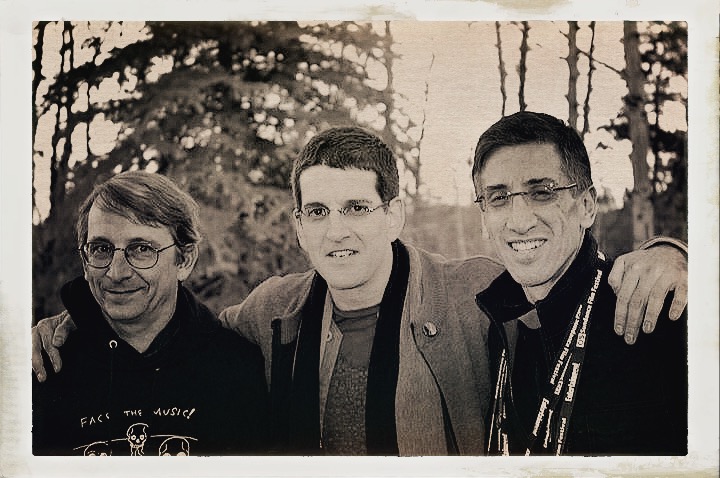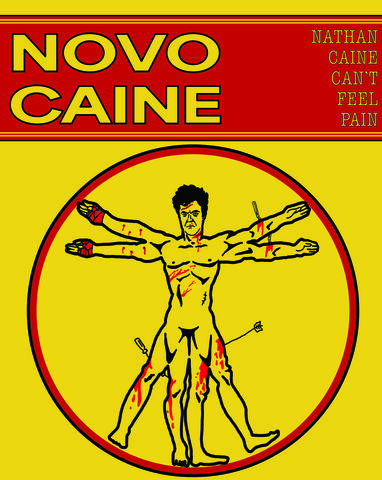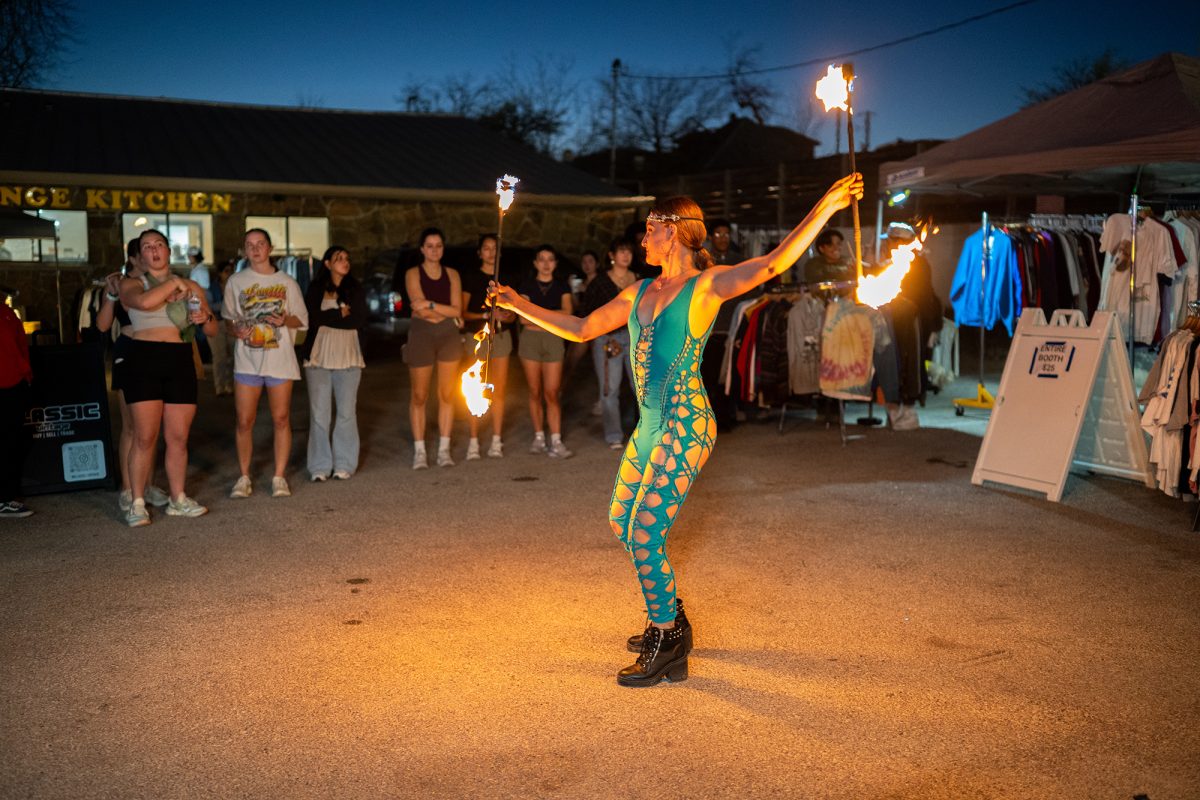Marie was only 10 years old when Nazi soldiers invaded her home in Lidice, Czech Republic, and snatched her out of her mother’s warm embrace.
Similar to Marie, during World War II, other children from the village were kidnapped and taken away from their families. The women of Marie’s town were moved to Ravensbruck concentration camp. The men were shot and killed. The village of Lidice was burned to the ground. Separated from her family, the soldiers told Marie her mother is dead, and she ended up getting adopted by a German family.
Like many other child victims, Marie’s life was completely taken away from her and changed forever.
Texas State senior journalism lecturer Elizabeth Clark was granted the Bess Whitehead Scott Scholarship to further research on her book about the tragedy of Lidice, Czech Republic. Clark said she believes stories like Marie’s should be told and aims to relay what happened at Lidice through the eyes of its child victims during the era.
Clark said the story of Lidice is an atrocity filled with vicious attacks on its people and the village. Adolf Hitler ordered the annihilation of Lidice June 10, 1942, after the exiled Czech government implemented an assassination plan and killed cruel dictator and governor Reinhard Heydrich.
Through her research and the eventual book publishing of her book, Clark said she hopes to share this story to honor the victims of the massacre and inform the world about this piece of history.
“The purpose is to honor the people’s determination to not let (the story) be forgotten,” Clark said. “I would be telling the story as a way of helping move the tale through our times; maybe we can learn something from it.”
A theme Clark said she plans to highlight throughout the book is family separation and the emotional toll on children during the war.
“I would say (Lidice) even relates to what happened to the American Indians,” Clark said. “Trying to assimilate people into another culture sometimes ends up in separation of families and the destruction of a particular culture.”
To tell their stories, Clark has been in contact with the child victims of Lidice—who are now in their late 70s and 80s—in hopes of establishing a friendship to better tell their stories in her book.
“The people I’ve been interviewing are known as child survivors,” Clark said. “I’ve been (to Lidice) three times now to cultivate my sources and continue to do interviews. I just want to make sure they understand I want to tell their story, which is the main reason why I keep going back.”
The $2,000 Bess Whitehead Scott Scholarship was awarded to Clark during summer 2019. Clark said the scholarship helped validate the importance of the work she has been doing.
“I was delighted,” Clark said. “It was a multifaceted honor because I felt I was not only being awarded some funding to help me travel there again but the validation someone respected the work I’m doing.”
Co-chair of the Bess Whitehead Scholarship fund, Jorjanna Price, said she and her colleagues admire the research Clark is doing and believes in sharing the story.
“When we reviewed the applicants for the 40-and-over scholarship, this particular one by Beth Clark just rose to the top,” Price said. “Every single one of us was so impressed with the work she’s doing; we just want to support her and see this work to fruition so more people can learn about this important story.”
Having grandparents who immigrated from the Czech Republic during World War I, Clark said she grew up hearing the story through relatives. She said this has been a major reason for her interest in Lidice.
“Hearing it throughout childhood, the story has been embedded in me for a long time,” Clark said. “(My interest) has built up over the years due to my curiosity and my children’s and family’s curiosity.”
As she has continued to research and learn about the story of Lidice over the years, Clark said she has grown a greater appreciation for the struggle her grandparents endured in immigrating to the United States.
“I think it really did stop me in my tracks and appreciate what it took for my grandparents to leave home and never go back,” Clark said. “It’s given me new insights into the way people are now, seeing there isn’t much difference considering the crossover of power struggles.”
Price said she and her colleagues see major importance in having the story of Lidice published and told. They encourage Clark to keep telling and researching this story.
“I think this book could be very popular because it’s based on such a powerful and moving story; a true story,” Price said. “By knowing the history better, maybe we can make better choices today.”
Associate professor Kym Fox said she recognizes the commitment it takes to pursue this kind of passion project Clark has invested in.
“It takes not only a financial commitment but a time and emotional commitment,” Fox said. “It’s really good to see her able to go, have resources and write continually over time as she’s done and now putting it together into a book.”
To the Czech Republic people, the story of Lidice is one of hope and is celebrated as such. The people of the country refuse to let the story be forgotten.
“The village refused to be erased from all maps and memory, which is what Hitler wanted,” Clark said. “People even starting naming their babies after the village: Lidice. There are these little places around the world where people say, ‘No, we’re not going to forget.’”
The story of Lidice is told in various ways. The old village is now a memorial ground featuring museums and art galleries to help educate those who may be unaware of what happened. A new village, located right beside the old, was built with pastoral cottages, winding streets and serves as a place children and families now live and call home.
Additionally, a rose garden was built to commemorate the lives lost and signify life as the stories of these victims live on. Clark said a major way the people of Czech Republic continue to tell the tale of Lidice is through the rose colors.
“The people planted big red roses and fiery orange roses to symbolize the blood of the men and the fire that burned the village,” Clark said. “One of the buds is colored pink in honor of the women. The other rosebuds with landscaped white roses are meant to remember the child victims.”
Clark said her main goal mirrors the town’s relentlessness to never forget what happened to the village and people of Lidice. She plans to inform others about the narrative and showcase the life experiences of the children affected by the tragedy.
“I hope in my writing and storytelling, I can revive an interest in the history,” Clark said. “This story is about determination. It’s about hope, survival and remembrance. It’s learning from the past.”
For more information about Clark’s project and the story of Lidice, visit her website at Lidicelives.wp.txstate.edu
Categories:
Professor receives scholarship for research for book highlighting the destruction of Lidice
October 8, 2019
By
Elizabeth Clark sitting in her office working on her blog “Lidice Lives.” Photo credit: Abby Gutierrez
0
Donate to The University Star
Your donation will support the student journalists of Texas State University. Your contribution will allow us to purchase equipment and cover our annual website hosting costs.
More to Discover














